Social innovation, a driver and catalyst for SSE
Definition by the European Commission
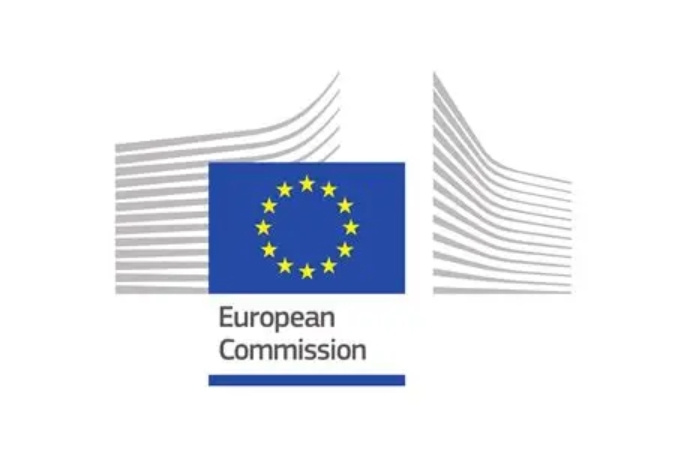
According to the European Commission, social innovation can be defined as “the development and implementation of new ideas (products, services and models) to meet social needs and create new social relationships or collaborations. It represents new responses to pressing social demands, which affect the process of social interactions. It is aimed at improving human well-being. Social innovations are innovations that are social in both their ends and their means. They are innovations that are not only good for society but also enhance individuals’ capacity to act.”
Definition by the Organisation for Economic Cooperation and Development

According to the Organisation for Economic Cooperation and Development (OECD), “social innovation involves creating and implementing new solutions that entail conceptual, process, product, or organisational changes, with the ultimate goal of enhancing the welfare and well-being of individuals and communities. Numerous initiatives led by the social economy, communities, and social entrepreneurs, have demonstrated innovation in addressing socio-economic and environmental challenges, while also fostering economic development. Examples of such innovation include community-led renewable energy projects and microfinance programmes targeting marginalised groups.”
Acknowledgement of the sector’s role by the United Nations

In accordance with the previous definitions, the United Nations (UN) qualifies social innovations as “new solutions (products, services, models, markets, processes etc.) that simultaneously meet a social need more effectively than existing solutions and lead to new or improved capabilities and relationships and better use of assets and resources.” The UN further recognises SI as an integral factor to achieving the 2030 Agenda for Sustainable Development. As highlighted by the UN Conference on Trade and Development, “given the explicit focus on addressing unmet human needs through new social practices and institutions, SI is likely to address aspects of the Sustainable Development Goals that emphasise inclusion and greater equity, especially in areas such as education, health, work and poverty reduction.”
SI definition and context in France
According to the Higher Council for Social and Solidarity Economy (CSESS – “Conseil Supérieur de l’Economie Sociale et Solidaire”): "social innovation consists of developing new responses to new or poorly met social needs under current market and social policy conditions, involving the participation and cooperation of the actors concerned, in particular users and consumers. These innovations concern both the product or service and the mode of organisation and distribution (...). They involve a process consisting of several stages: emergence, experimentation, dissemination and evaluation."
Article 15 of the SSE Law of July 31st, 2014 provides a legislative definition of social innovation:
"I. - A project by one or more companies consisting of offering products or services with one of the following characteristics is considered to be social innovation:
- Either it meets social needs that are not or are poorly met, whether under current market conditions or within the framework of public policies;
- Or meet social needs through an innovative form of enterprise, an innovative process for producing goods or services, or an innovative method of organising work. The procedures for consulting and developing socially innovative projects involving the beneficiaries concerned by this type of project, as well as the methods of financing such projects, also fall within the scope of social innovation.
II. - In order to benefit from public funding for social innovation, the innovative nature of the activity must also make it difficult for the enterprise to secure full financing under normal market conditions. This condition does not apply to funding granted for social innovation by local authorities.
III. - The Higher Council for Social and Solidarity Economy shall define guidelines for identifying a socially innovative project or economic activity within the meaning of I.”
In order to further specify institutional frameworks of social innovation and provide useful information and tools for SSE stakeholders, Avise became involved in publication of various SI handbooks and characterisation grids. A selection of these resources is listed below:
A Handbook on social innovation produced by Avise
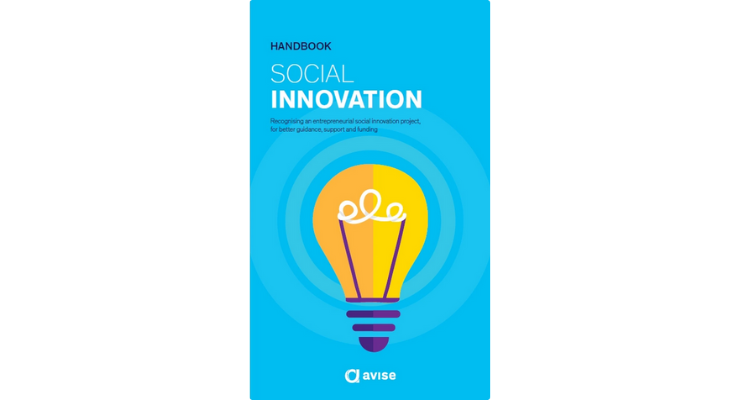
Produced by Avise, this Handbook provides a comprehensive overview on social innovation: challenges, characteristics, preconceptions, national and European context, ecosystem of actors, etc. This publication is intended for professionals in the fields of support and financing, as well as public actors working for territorial development.
Avise’s involvement in characterising SI in France
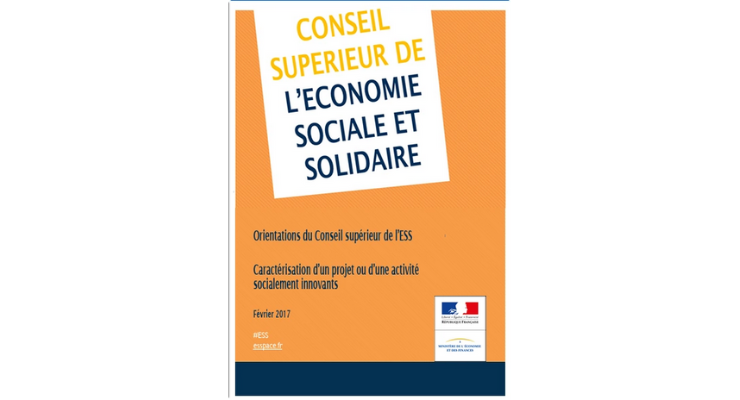
Although there is no label to “certify” social innovation in France, there has been a wide range of efforts underway to develop tools for defining and characterising it. Between 2011 and 2015, Avise coordinated a collective work of 30 actors that resulted in producing a Characterisation Grid for social innovation. The objective was to ensure that SI is recognised as innovation in its own right, and to facilitate access to traditional innovation support and financing mechanisms for socially innovative projects.
Capitalising on results of this work, in 2017, the Higher Council for Social and Solidarity Economy (CSESS) proposed Orientations on social innovation characterisation, aiming at providing a common framework for all French stakeholders, while accounting for the diversity of their needs.
A guide “Engaging in an innovation process” produced by Avise
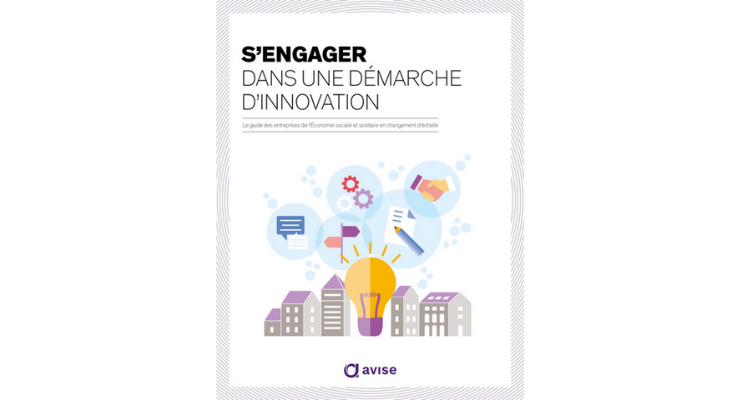
Destined to decision-makers, SSE professionals and other actors of the sector, this guide invites readers to consider the definition and implementation of their social innovation strategy. It seeks to provide guidance, inspiration and facilitate action: it presents the essential steps for changing practices and structuring an innovation process, analyses the conditions for success and offers a variety of testimonials.
Mapping and analysis of the French SI ecosystem
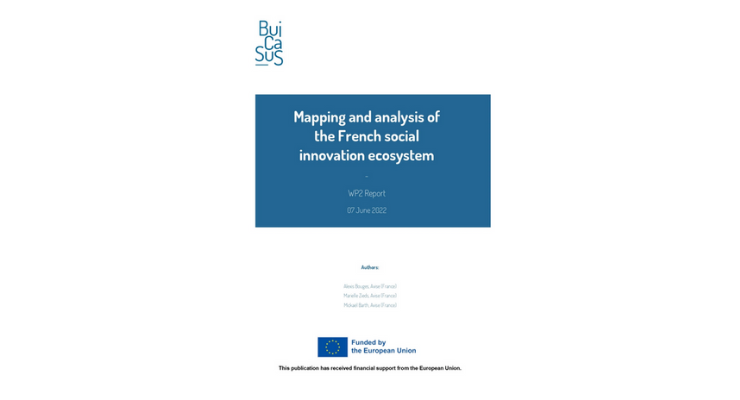
Produced by Avise within the framework of the European project BuiCaSuS, this report constitutes the restitution of a collaborative work of mapping and analysis of the French social innovation ecosystem. It aims to draw up an inventory of the support offered to social innovation in France, but also to highlight success factors and obstacles to its upscaling, as well as the contribution levers to public policy making, in particular through two case studies.